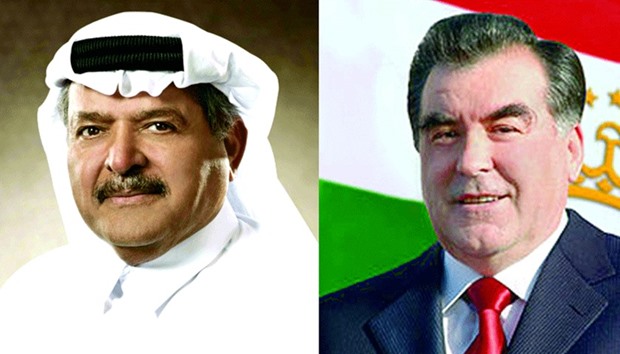The Republic of Tajikistan is seeking to attract Qatari investments into the country’s five major sectors, including tourism and hydropower, said President Emomali Rahmon, who led a high-level business delegation to Qatar yesterday.
Rahmon and his delegation met with officials and members of the Qatar Businessmen Association (QBA), led by its chairman, Sheikh Faisal bin Qassim al-Thani, “to activate business cooperation” between Tajikistan and Qatar.
The president said Tajikistan has implemented a series of economic reforms and “positive policies” to lure Qatari investment in the fields of hydropower, banking and finance, tourism, mining, and agriculture.
“During the last decade, we were able to attract more than $10bn in foreign investments, which is why our economy is growing rapidly in all sectors. These improvements have placed our country among the world’s Top 10 in terms of economic reforms.
“Qatar is one of our main global partners and we are interested in cementing economic ties at all levels. This meeting is a significant factor for enhancing multi-faceted cooperation between Tajikistan and Qatar,” said Rahmon, citing other sectors such as transportation and communications. Rahmon also said Tajikistan has four economic zones “that are ready for Qatari investments” in the fields of cement, energy, water, and the chemical industry. Speaking to Gulf Times on the sidelines of the meeting, Jamoliddin Nuraliev, first deputy chairman, National Bank of Tajikistan, said the government has streamlined and simplified procedures in doing business to provide many investment opportunities for foreign investors. “In a recent speech in parliament, the president suggested policies for flexibility and tax preferences and exemptions to stimulate investor appetite and interest in Tajikistan’s tourism sector.
“Despite a turbulent global economy, we have achieved remarkable economic progress over the past several years and the country boasts of an investment environment that is conducive for business. Tajikistan is now ready for Qatari investments,” Nuraliev stressed.
In his presentation, Nuraliev announced plans to invite Qatar Airways to launch flights from Doha to Tajikistan as part of efforts to transform the country into an investment hub. Citing a 3.1bn population around Tajikistan, Nuraliev said Qatar can tap neighbouring countries like India, Russia, Kazakhstan, China, Pakistan, and Afghanistan, as well as Central Asia.
Similarly, Sheikh Faisal in his speech said: “Tajikistan is situated between three countries with the largest economies in the world, China, India, and Russia. Tajikistan has a huge stock of water and minerals, as well as agricultural and tourism investment opportunities for Qatari businessmen.”
Citing the Diar Dushanbe project, a mixed-use development in Tajikistan, Sheikh Faisal said Qatar is the first Arab country that had embarked on investment projects in Tajikistan.
The meeting was also highlighted by the signing of a Memorandum of Understanding between the Qatar Stock Exchange and the Central Asian Stock Exchange, a new financial institute in Tajikistan, which was established in April 2015 as “a unique platform for organised securities trading.”

Sheikh Faisal: Positive approach (left). Rahmon: Flexible policies.

